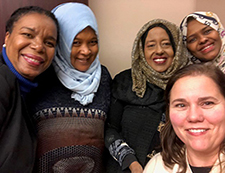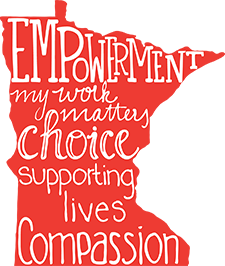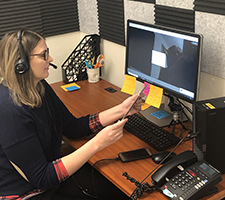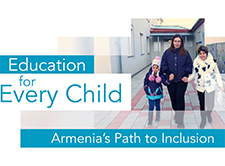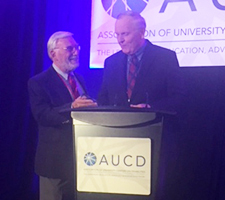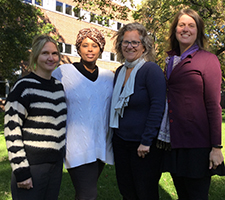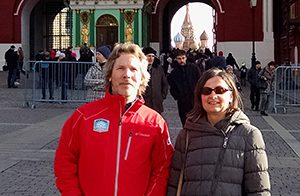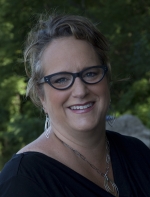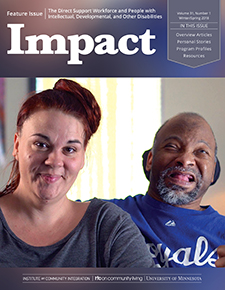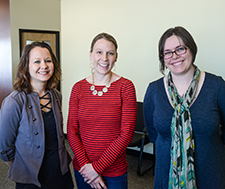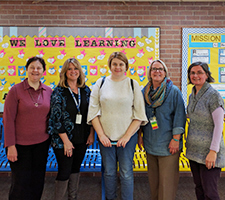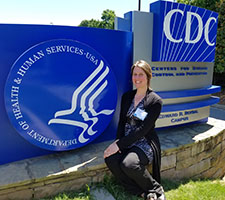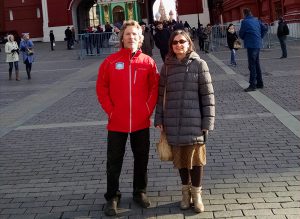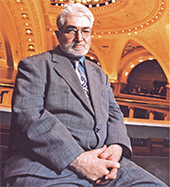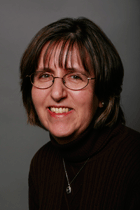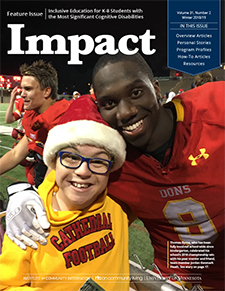
Historically, students with the most significant cognitive disabilities were often taught only functional skills in our K-12 schools — how to do self-care, tell time, use money, carry out routine daily tasks. But several laws, including the Individuals with Disabilities Education Act (IDEA 2004) and the Every Student Succeeds Act of 2015 (ESSA), have affirmed that students with disabilities have the right to access the grade-level curriculum. Today, we know how much more students can learn when provided with the opportunity, and growing numbers of families, educators, and students are advocating for higher expectations and a more inclusive educational experience.
What does it look like when schools transition to more inclusive and rigorous education for students with the most significant cognitive disabilities? In ICI’s new Impact: Feature Issue on Inclusive Education for K-8 Students with the Most Significant Cognitive Disabilities, inclusive education is explored through the perspectives of researchers, teachers, education administrators, students, and parents. They share knowledge, skills, experiences, and resources that can help K-8 schools nationwide support the learning and inclusion of all students.
“The learning curve for adults is sometimes steep when more inclusive practices are introduced in schools,” says Sheryl Lazarus, Director of ICI’s TIES Center. “However, students — both those with cognitive disabilities and their peers without — often make the shift more easily. The key is for the needed and appropriate supports to be in place for students, and for their teachers and related services personnel to have the knowledge, skills, and quality curricular resources they need to confidently support the learning and participation of all students.”
This Impact is available in the interactive digital edition with bonus content (videos, webinars, podcasts) and also in print. For print copies, contact icipub@umn.edu or 612-624-4512.
Impact is published by ICI and its Research and Training Center on Community Living. Additional support for this issue came from the TIES Center, the National Technical Assistance Center on Inclusive Practices and Policies for students with the most significant cognitive disabilities, based at ICI’s National Center on Educational Outcomes.

